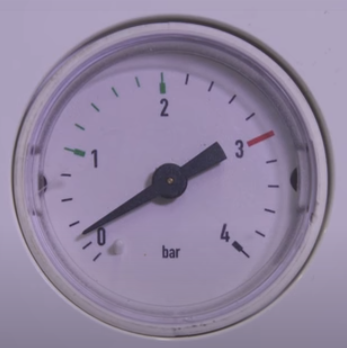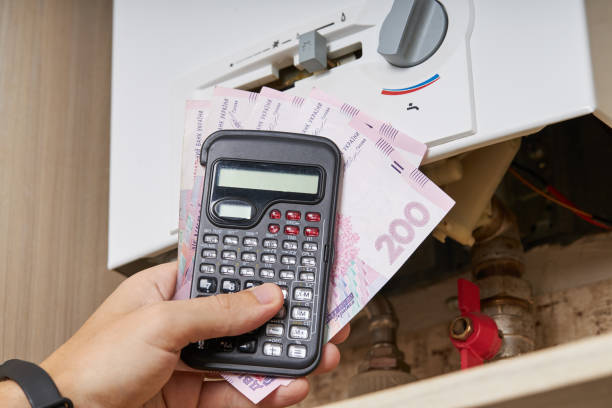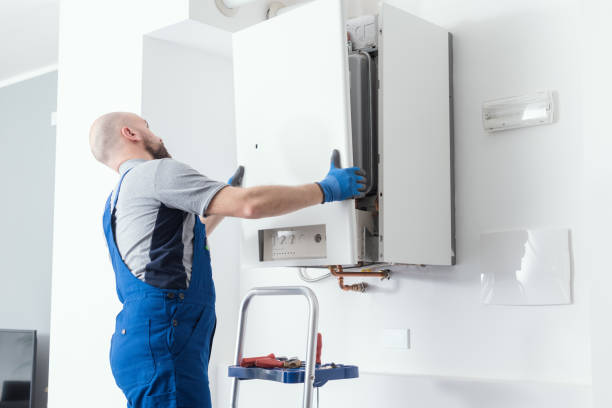Low boiler pressure can be a frustrating and potentially dangerous problem for homeowners. In this article, we will explore the factors behind low boiler pressure and provide effective solutions for fixing it.
Causes of low boiler pressure
Low boiler pressure is caused by several factors, such as leaks, faulty valves, and trapped air. To correct low pressure, check for leaks, maintain the pressure relief valve, bleed air from the system, and seek professional help if needed. Fixing low pressure improves the efficiency and safety of your heating system.

What is boiler pressure?
Boiler pressure refers to the amount of pressure that is maintained in the system by the water. In a properly functioning system, the pressure should be within a specific range, typically between 1 and 2 bar.
What can cause low boiler pressure?
When the pressure in the system falls below this range, it is considered to be low and can cause a variety of issues. Low boiler pressure can result from several factors, including leaks in the system, a damaged expansion tank, or issues with the pressure relief valve.
It can also be caused by trapped air in the system or by the system being refilled with water.
Is low boiler pressure dangerous?
Boiler pressure becomes low when it falls below 0.8 bar. Thankfully, it is not dangerous even if it goes down to zero on the gauge. Although it isn’t harmful, constant low pressure will make the boiler perform poorly. If you can’t find out why it has gone so low, it is important to call a gas safe engineer to resolve it.
Effects of low boiler pressure
Low boiler pressure can have a significant impact on the functioning of your heating system. If the pressure is too low, it can cause the system to function poorly, leading to reduced heating efficiency and increased energy costs.
Additionally, low pressure can put additional stress on the components in your heating system, leading to wear and tear, and it can also pose a safety risk to your family and home.
Does low boiler pressure affect hot water?
When the pressure in a boiler drops below the optimal range, it can affect hot water production in several ways. Firstly, it can cause the boiler to shut down, preventing it from producing hot water altogether. Secondly, it can cause the water to heat up more slowly, leading to longer wait times for hot water. Finally, it can cause the water to be less hot than usual, making it less effective for tasks such as washing dishes or taking a shower.
Low boiler pressure can have a significant impact on the hot water supply in your home. When the boiler pressure drops, the water flow rate decreases, which can lead to a reduction in the amount of hot water available for use. This is because the boiler needs a certain level of pressure to maintain a consistent flow of hot water throughout the house. If the pressure is too low, the hot water may not reach all parts of the house, resulting in cold spots or low water pressure.
No pressure in boiler but still working
If the heating and hot water are working fine for long periods, even when there is no pressure, this means the pressure gauge is faulty. The needle can get stuck at zero and not move even when the heating is on. Sometimes the gauge is simply clogged up with debris and won’t need replacing.
Read the full article on this here

Understanding the Causes of Low Boiler Pressure
There are several factors that can contribute to low boiler pressure, including:
Imcorrectly sealed heating system
If your heating system is not properly sealed, air can escape, causing the pressure in the system to drop. This can be caused by a variety of factors, including leaks, cracks, or gaps in the system.
Leaks in the system
Leaks can occur anywhere in the system, including in pipes, fittings, radiators or valves. If a leak is not repaired quickly, it can cause the pressure in the system to drop, leading to low boiler pressure.
Lack of maintenance
Regular maintenance is important to keep your heating system running smoothly. If you neglect to maintain your system, it can lead to a build up of debris, corrosion, or mineral deposits that can cause low boiler pressure.
Faulty pressure relief valve
The pressure relief valve is an important safety feature that helps to prevent the build up of excessive pressure in the system. If the valve is not functioning properly, it can cause the pressure in the system to drop, leading to low boiler pressure.
Blocked or clogged components
Over time, your heating system can become clogged with debris, limescale deposits, or corrosion. This can cause components in the system to become blocked, reducing the flow of water and leading to low boiler pressure.

The Importance of Maintaining Proper Boiler Pressure
Maintaining proper boiler pressure is important for several reasons, including:
Safe and efficient operation
Proper boiler pressure is necessary for the safe and efficient operation of your heating system. If the pressure in the system is too low, it can cause the system to function poorly, leading to reduced heating efficiency and increased energy costs.
Protection of your heating system
Low boiler pressure can put additional stress on the components in your heating system, leading to wear and tear. If the pressure is not restored, it can cause damage to the system, leading to costly repairs or even replacement.
Protection of your family and home
Low boiler pressure can also pose a safety risk to your family and home. If the pressure in the system becomes too low, it can cause the system to shut down, leaving your home without heat. In extreme cases, low pressure can also lead to leaks or other safety hazards.
If the pressure in your heating system is too low, it can cause the system to function poorly and reduce heating efficiency. This can lead to increased energy costs and a less comfortable home. By maintaining correct pressure, you can ensure that your system is working efficiently and effectively.
Effective Solutions for Fixing Low Boiler Pressure
If you are experiencing low boiler pressure, there are several solutions that you can try to restore proper pressure to your system, including:
Checking for leaks and sealing the system
Checking your heating system for leaks and sealing any that you find can help to prevent air from escaping and restore proper pressure to the system.
Checking the pressure relief valve
Regular maintenance of the pressure relief valve can help to ensure that it is functioning properly and protecting your system from excessive pressure. Make sure the engineer checks it on the annual boiler service
Bleeding air from the system
Bleeding air from your heating system can help to restore proper pressure by removing any trapped air that may be causing low pressure.
Replacing a damaged expansion vessel
An expansion vessel helps to absorb any expansion that occurs in your heating system. If the tank is damaged or worn, it can cause low pressure in the system. Replacing a damaged expansion vessel can help to restore proper pressure.
Professional boiler service and repair services
If you are unable to resolve low pressure in your system on your own, it may be necessary to seek professional maintenance and repair services. A qualified engineer can diagnose the issue and provide the necessary repairs to restore proper pressure to your system.
Summary
Low boiler pressure can be caused by a variety of factors, but with the right approach, it can be easily fixed. Regular maintenance, timely repairs, and the right tools can help you keep your heating system running smoothly and safely. If you are experiencing low boiler pressure, contact a professional for a thorough diagnosis and repair.
*The information in this article should be used for general guidance only. Full details are on the link in the footer to our disclaimer page. Always discuss your requirements with a competent and suitably qualified professional before undertaking any work.
